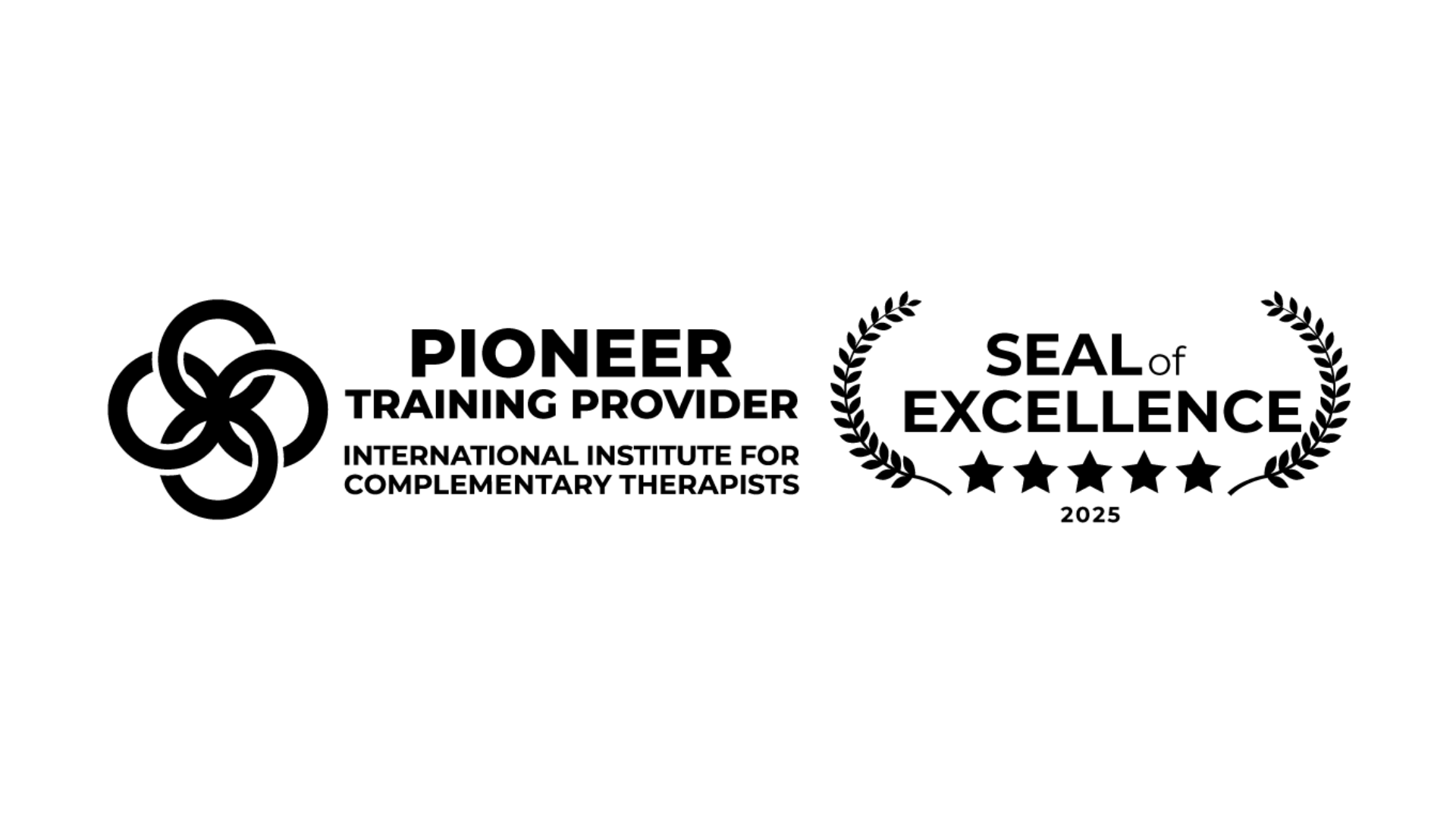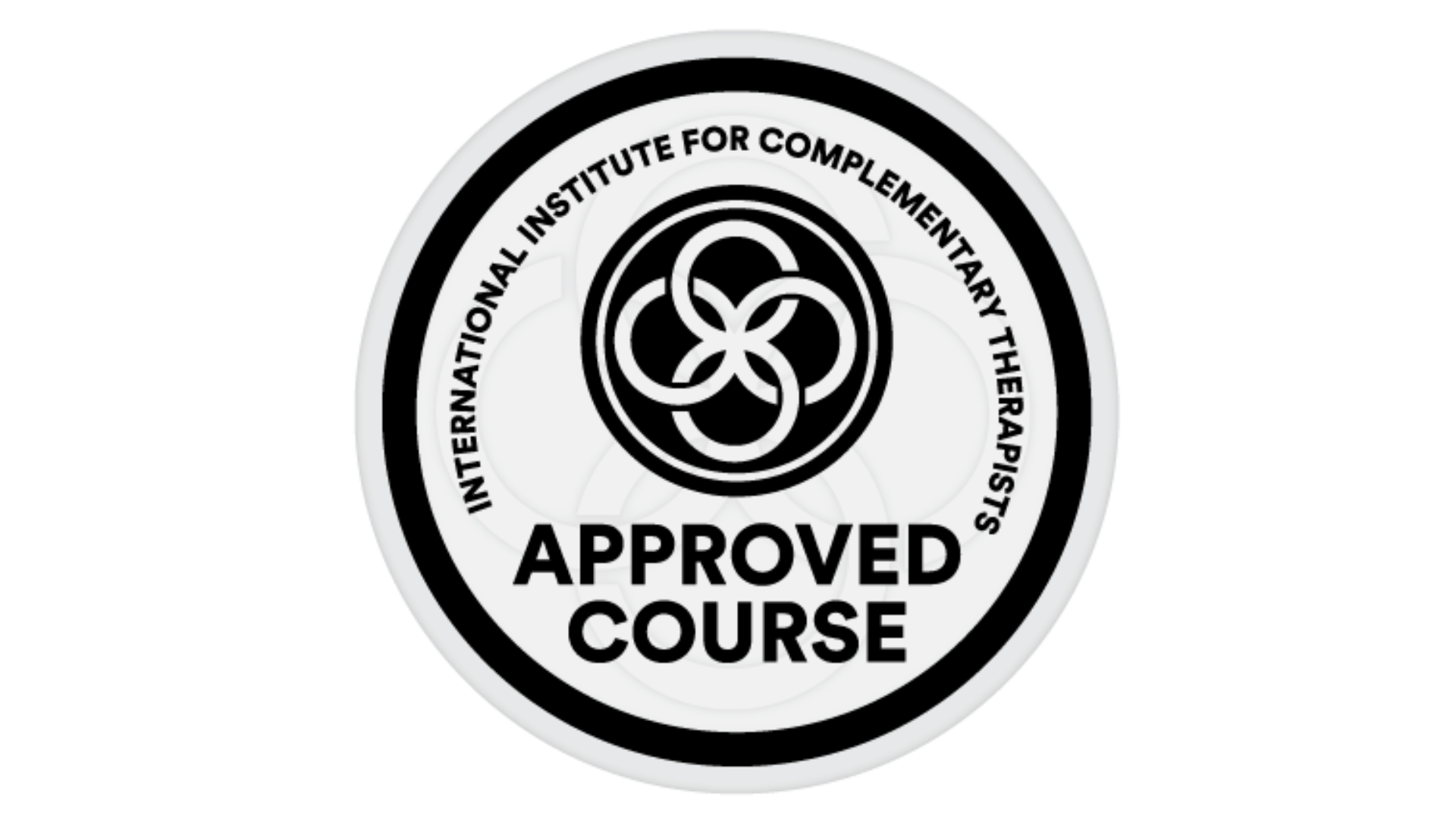[Self-Test: Could You Have Rejection Sensitive Dysphoria?]
Dysphoria, derived from the Greek term meaning "difficult to bear," refers to an intense emotional response that individuals with attention deficit disorder (ADHD or ADD) experience. It is essential to understand that this heightened emotional reaction is not a sign of weakness or lack of resilience, but rather a result of the condition itself. Rejection, criticism, and failure, which are universal life experiences, are magnified in their impact on individuals with ADHD and Rejection Sensitive Dysphoria (RSD). These experiences become unbearable, limiting, and significantly impairing for them.
Dysphoria, derived from the Greek term meaning "difficult to bear," refers to an intense emotional response that individuals with attention deficit disorder (ADHD or ADD) experience. It is essential to understand that this heightened emotional reaction is not a sign of weakness or lack of resilience, but rather a result of the condition itself. Rejection, criticism, and failure, which are universal life experiences, are magnified in their impact on individuals with ADHD and Rejection Sensitive Dysphoria (RSD). These experiences become unbearable, limiting, and significantly impairing for them.
In cases where individuals with RSD internalize this emotional response, it can resemble a full-fledged mood disorder, even including thoughts of self-harm. The sudden shift from feeling fine to overwhelming sadness, which stems from RSD, is sometimes misdiagnosed as rapid cycling mood disorder.
Physicians often require considerable time to recognize that these symptoms are a direct result of the abrupt emotional changes associated with ADHD and rejection sensitivity. This recognition is especially challenging because individuals with RSD tend to exhibit typical social interactions in all other aspects. However, it is important to note that RSD is a common trait among adults with ADHD.
On the other hand, when this emotional response is externalized, it manifests as intense and immediate anger directed towards the person or situation perceived as the source of pain.
Key elements of rejection sensitive dysphoria:
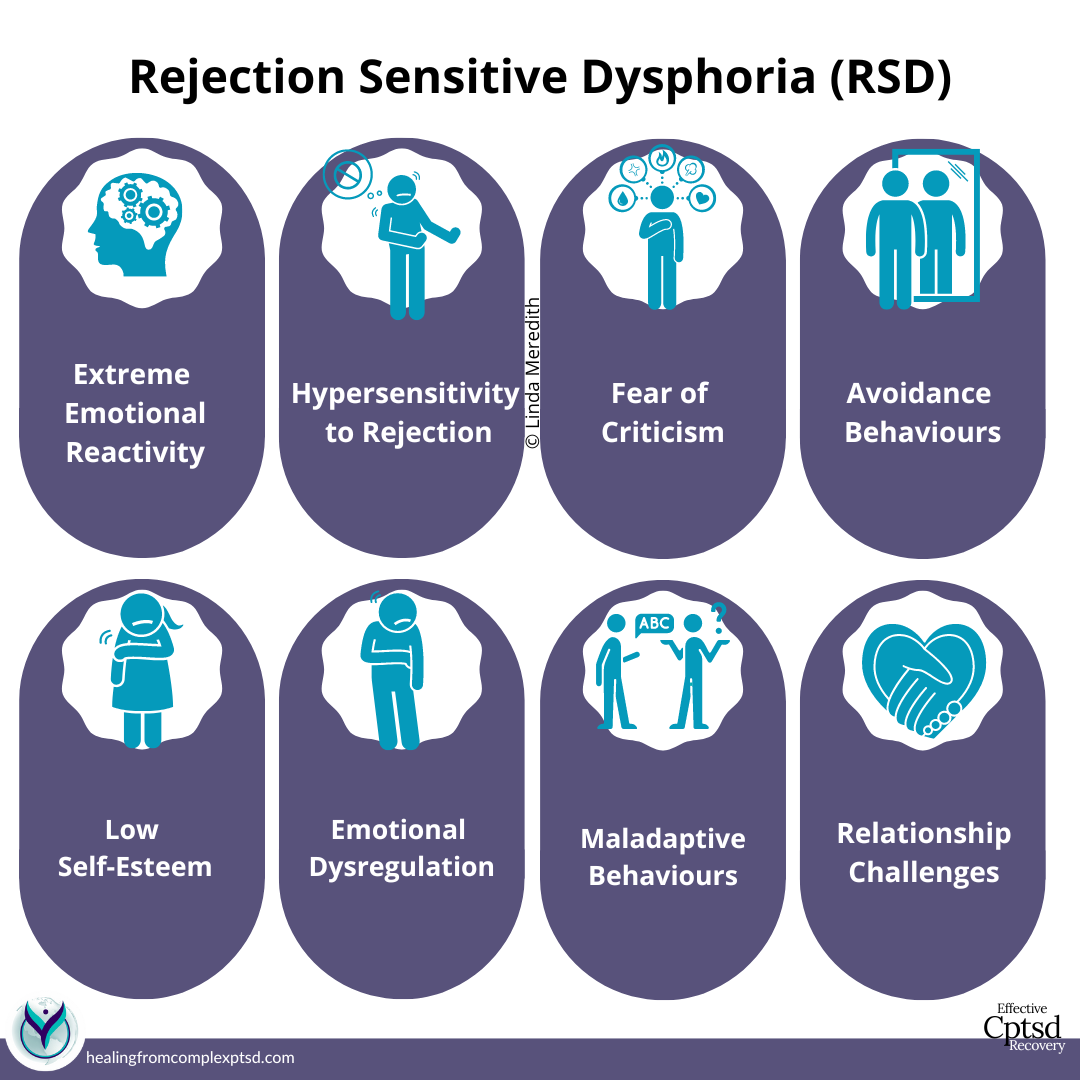
RSD Symptoms
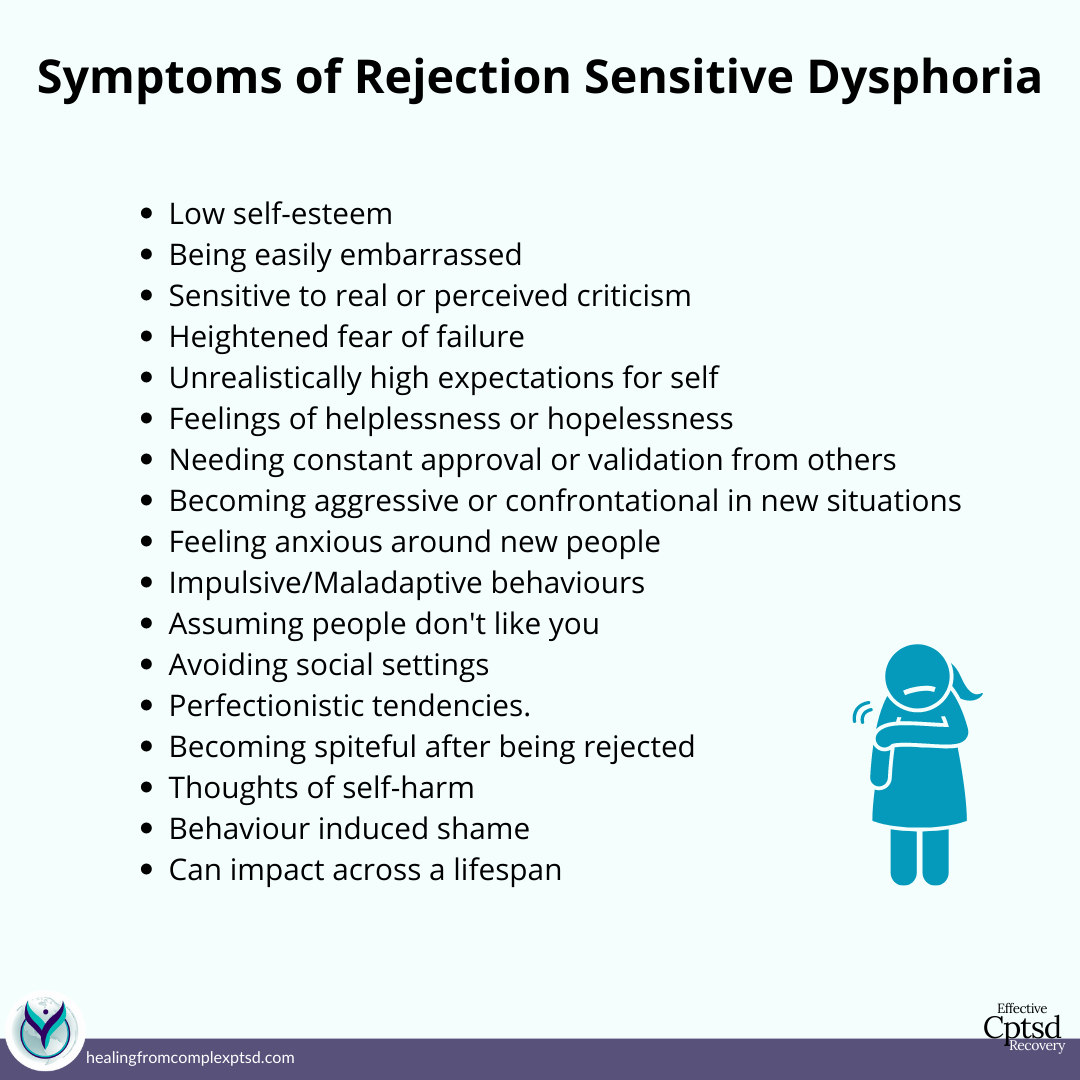
RSD Triggers
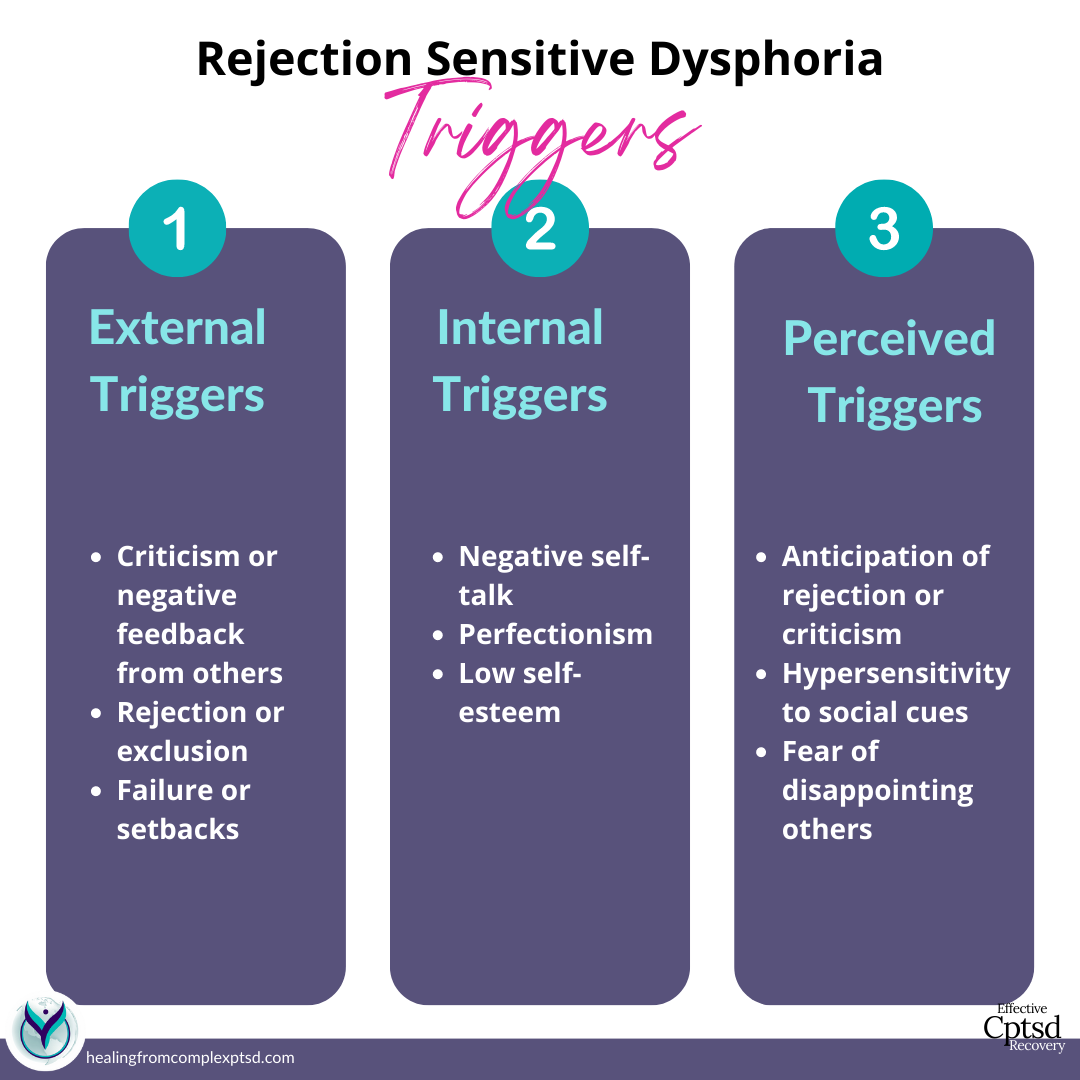
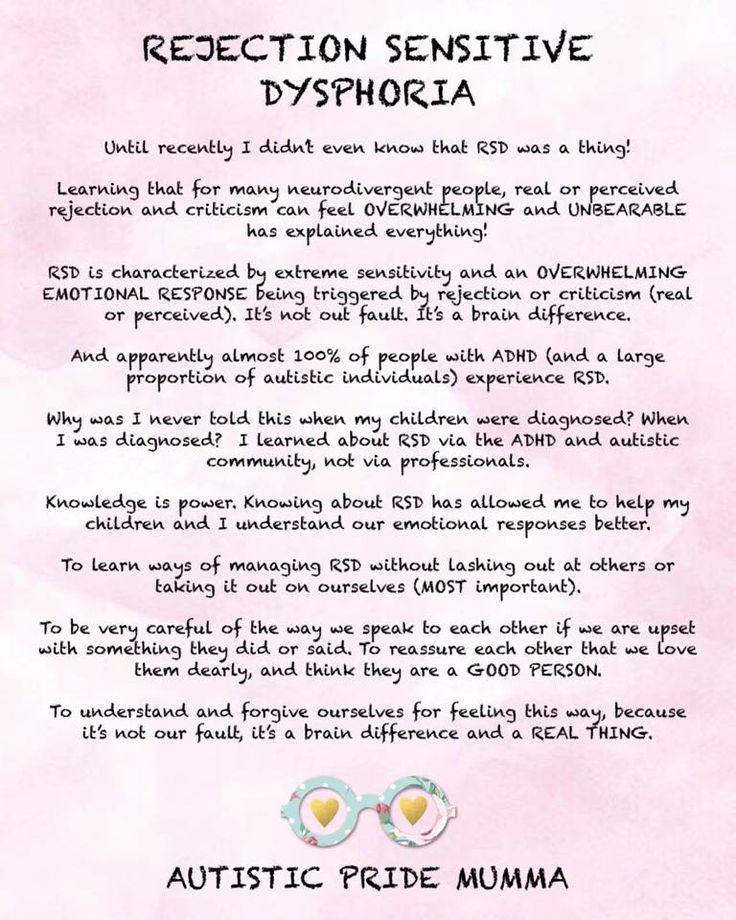
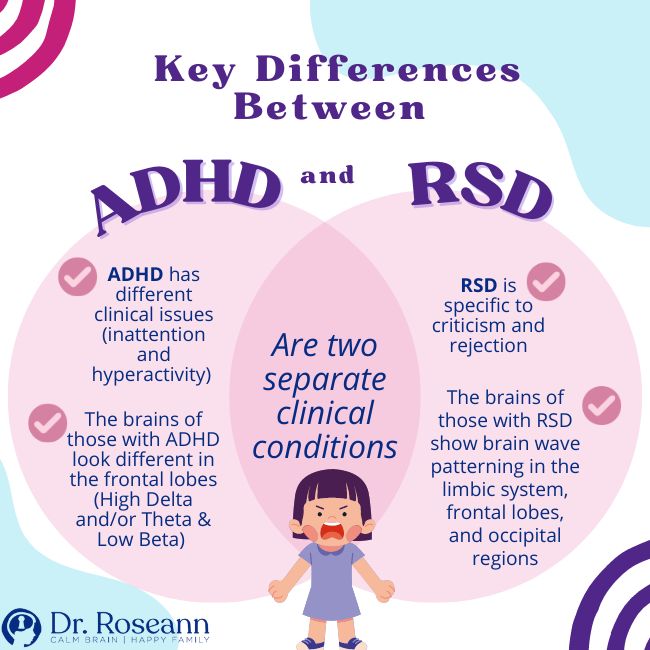
Adhd vs Ptsd and the overlap
Trauma vs Adhd and the overlap
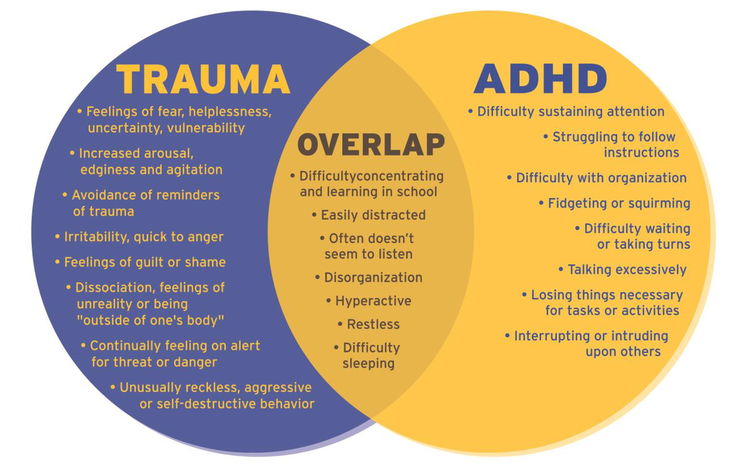
Ptsd vs Cptsd and the overlap
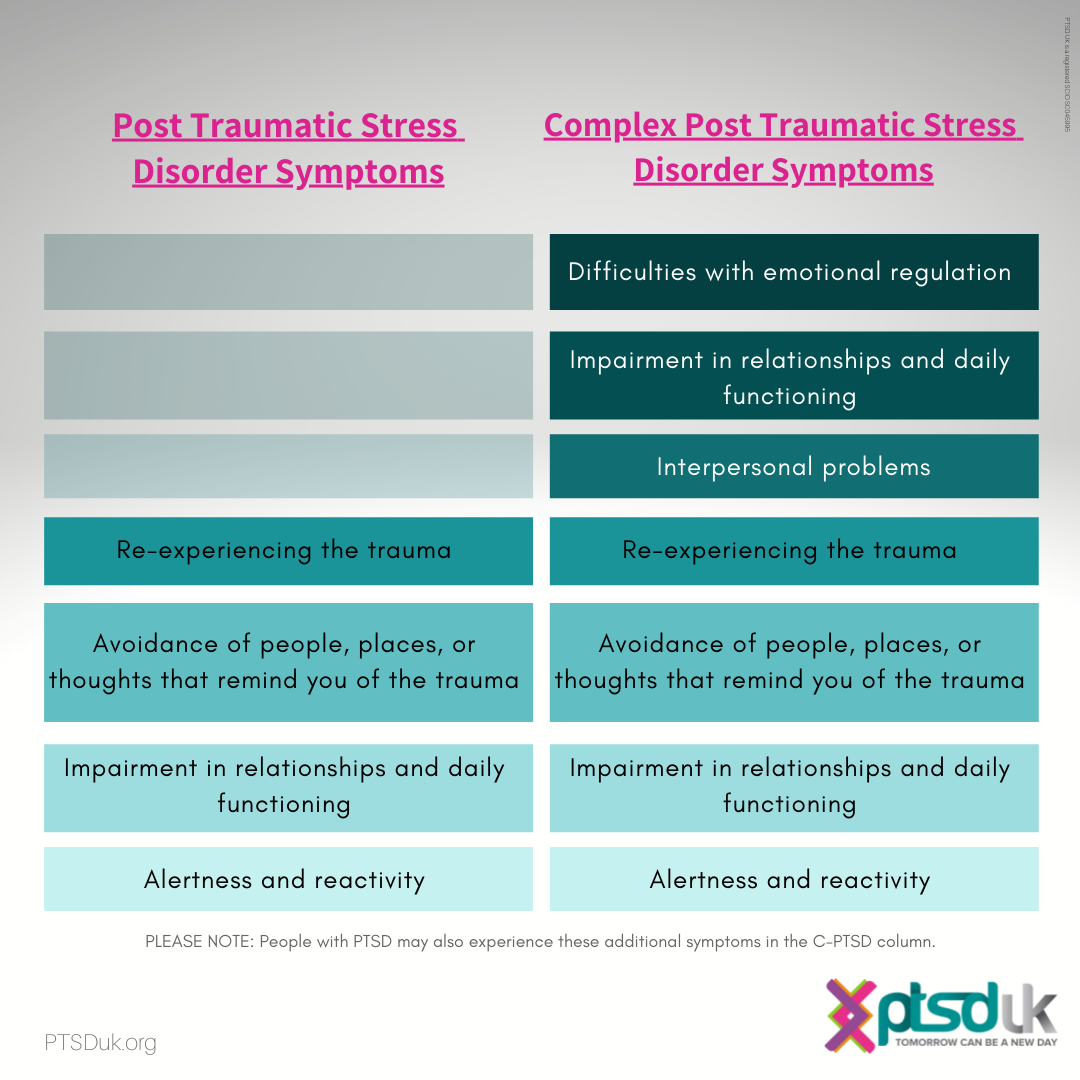
THRIVER LIBRARY
Skills. Practice. Confidence. Progress.
A practical library designed to build capacity one doable step at a time.
The Thriver Library is our growing collection of practical tools, worksheets, and guides designed to make CPtsd recovery easier in everyday life. No overwhelm. No academic jargon. Just brain-based resources you can use immediately to gain clarity, reduce crashes, and build steadier foundations step by step.
Whether you’re learning for yourself or supporting others, the Library helps you turn insight into integration – one doable action at a time.
Write your awesome label here.
Living with CPtsd?
What if recovery meant no longer remaining in survival mode?
What if recovery meant no longer remaining in survival mode?
Write your awesome label here.
CPtsd recovery is a shared walk, not a solo test of willpower.
With the right support, language, tools and Trauma Brain Mapping old survival patterns can settle. Experience less pressure, more progress and kind accountability so your effort finally lands as change you experience in your daily life. Personal freedom starts here.
With the right support, language, tools and Trauma Brain Mapping old survival patterns can settle. Experience less pressure, more progress and kind accountability so your effort finally lands as change you experience in your daily life. Personal freedom starts here.
Work directly with Linda
Find a practitioner near you
Write your awesome label here.
CPtsd Courses & Certification
✨ Whether you’re a professional, a survivor, or someone supporting a loved one, our CPtsd courses are designed for everyone. Explore practical, neuroscience-based tools and compassionate guidance you can use right away.
Follow us on social
CPtsd Recovery & Practitioner Training
Self-paced | Professional training | For practitioners and professionals
Join our newsletter
Sign up for our newsletter—a valuable digest of the latest Complex Trauma Recovery insights, news, and opportunities.
Simply enter your name & email address to subscribe.
You can easily update your preferences or unsubscribe anytime.
Simply enter your name & email address to subscribe.
You can easily update your preferences or unsubscribe anytime.
Thank you!
